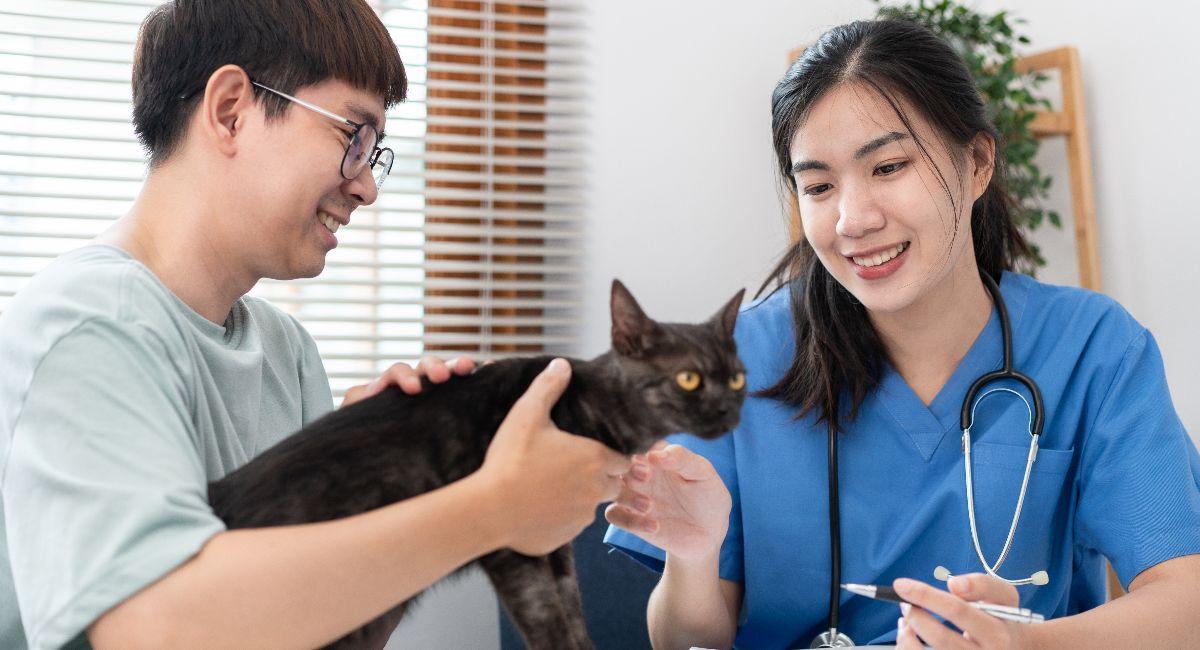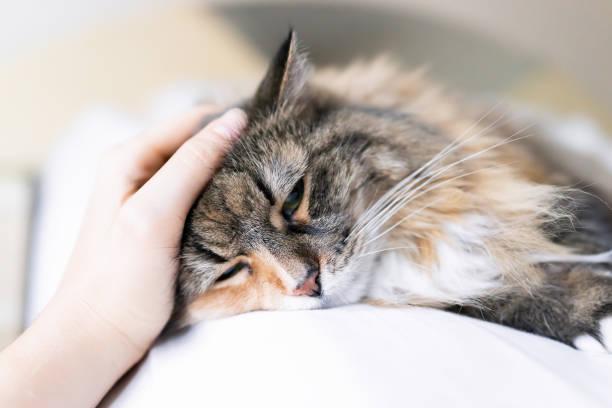Sep 19, 2025
Pet Insurance Waiting Periods Explained: What Every Pet Owner Needs to Know
Pet Insurance Waiting Periods Explained: What Every Pet Owner Needs to Know
K
By Kelly Lau
Learn pet insurance waiting periods: 0-14 days for accidents, 14 days for illness, 6+ months for orthopedic. Get your pet covered before you need it.
Insurance products
Blog Post
Education

TL;DR: The Bottom Line
Pet insurance waiting periods are mandatory time frames (typically 0-14 days for accidents, 14 days for illness, 6+ months for orthopedic conditions) that begin when you enroll before coverage kicks in. Think of them as a "no-claims zone" that prevents fraud while protecting honest pet parents from unexpected vet bills down the road. The key? Enroll early while your furry friend is healthy, because anything that happens during waiting periods won't be covered and could be labeled pre-existing. Smart pet parents get coverage before they need it.
How Do Pet Insurance Waiting Periods Actually Work?
Pet insurance waiting periods are the time between when you buy coverage and when you can actually use it, typically ranging from zero to 30 days, depending on the type of care needed.
Here's the straight talk: When you sign up for pet insurance today, you can't file a claim tomorrow. Insurance companies build in these waiting periods to prevent pet parents from enrolling only after their dog starts limping or their cat begins showing signs of illness.
The waiting period clock starts ticking the moment your policy becomes effective. If your pet gets sick or injured during this time, that condition typically won't be covered—ever. It's considered pre-existing, even though you bought the insurance before symptoms appeared.
Different Types of Waiting Periods:
- Accident coverage: 0-14 days (some companies offer immediate coverage)
- Illness coverage: 14-30 days standard
- Orthopedic conditions: 6-12 months for things like hip dysplasia or cruciate ligament injuries
- Wellness/preventive care: Often no waiting period
What Types of Coverage Have Different Waiting Periods?
Accident coverage typically has the shortest waiting periods (often zero to five days), while orthopedic conditions may require waiting up to a year before coverage begins.
Let's break this down by coverage type:
Accident Coverage
Most companies recognize that accidents are unpredictable—your dog doesn't plan to eat that sock or chase a car. That's why many insurers offer same-day or next-day accident coverage. Some companies offer zero-day waiting periods for accidents.
Illness Waiting Periods
Illnesses develop over time, making them harder for insurers to assess. The standard 14-day waiting period gives companies confidence that symptoms weren't already brewing when you enrolled. This covers everything from ear infections to cancer diagnoses.
Orthopedic and Cruciate Ligament Conditions
These are the big-ticket items that can require expensive surgery. Because conditions like hip dysplasia and torn ACLs often have genetic components or develop gradually, insurers impose longer waiting periods—sometimes up to 12 months.
Wellness and Preventive Care
Since these are planned expenses (vaccines, dental cleanings, annual exams), most companies offer immediate coverage. You're not gaming the system when you schedule a routine checkup.
Why Do Pet Insurance Companies Require Waiting Periods?
Waiting periods prevent fraud and keep insurance affordable for everyone by stopping people from buying coverage only after their pet gets sick.
Insurance works on the principle of shared risk. When everyone pays into the pool while healthy, there's money available when someone needs expensive care. Without waiting periods, people could:
- Wait until their pet shows symptoms, then buy insurance
- Get coverage for the expensive surgery they knew was coming
- Cancel the policy after getting reimbursed
This would drive up costs for responsible pet parents who maintain year-round coverage. The North American Pet Health Insurance Association (NAPHIA) reports that penetration rates are still relatively low in the US, which means there's tremendous room for growth as more pet parents discover the benefits of coverage.
How Long Are Typical Waiting Periods for Different Conditions?
Most pet insurance waiting periods range from immediate coverage for accidents to 6-12 months for orthopedic conditions, with 14 days being standard for general illness coverage.
Here's what you can expect from major providers:
Industry Standard Waiting Periods:
- Accidents: 0-5 days (many offer same-day coverage)
- General illness: 14 days
- Orthopedic conditions: 6-12 months
- Cruciate ligament injuries: 6-12 months
- Cancer: Usually covered under illness (14 days)
- Hereditary conditions: 14 days to 6 months
- Behavioral issues: 14 days to 6 months
Companies with Shorter Waiting Periods:
Some major providers offer no waiting periods for accidents, with coverage that begins at midnight the day after enrollment. For illness coverage, most maintain the 14-day standard, though some extend to 30 days for certain conditions.
Can You Get Pet Insurance with No Waiting Period?
True "no waiting period" pet insurance is rare, but several companies offer immediate accident coverage, and some provide same-day wellness coverage.
Let's be honest—completely eliminating waiting periods would invite fraud. However, you can find policies with minimal delays:
Zero-Day Options Available:
- Accident coverage: Some major insurers offer immediate accident coverage
- Preventive care: Many companies offer immediate wellness coverage
- Switching carriers: Some companies waive waiting periods if you had continuous coverage elsewhere
What About "No-Wait" Insurance Claims?
Be wary of marketing that promises instant coverage for everything. No-wait pet insurance isn't common, but there are carriers with short waiting periods. The shortest legitimate waiting periods are:
- Accidents: Same day to 3 days
- Illness: 14 days minimum
- Orthopedic: 6+ months (industry standard)
Planning for Adventures
If you're the type who loves hitting the road with your four-legged co-pilot, timing your pet insurance enrollment becomes even more critical. Road trips and RV adventures expose pets to new environments and potential accidents. Just like you'd make sure your RV insurance covers all your travel scenarios, your pet's coverage should be in place well before you back out of the driveway for that first big adventure.
What Happens If Your Pet Gets Sick During the Waiting Period?

Any condition that appears during your waiting period typically becomes a pre-existing condition and won't be covered for the life of your pet's policy.
This is the tough reality of pet insurance timing. Even if you bought coverage before symptoms appeared, if your pet gets diagnosed during the waiting period, that condition is usually excluded permanently.
Real-World Example:
You buy insurance on January 1st with a 14-day illness waiting period. On January 10th, your dog starts vomiting and is diagnosed with gastritis. Since this happened during the waiting period, gastritis and related digestive issues likely won't be covered, even though you bought insurance before any symptoms.
What You Should Do:
- Don't delay treatment even if insurance won't cover it
- Keep detailed records of all vet visits and treatments
- Ask your vet to note if the condition is acute (sudden) vs. chronic
- Contact your insurer to understand exactly what's excluded
Some conditions that develop during waiting periods might be considered "curable" if they're fully resolved and symptom-free for an extended period (timeframes vary significantly by insurer), but this varies by company.
How Can You Minimize the Impact of Waiting Periods?
The best strategy is enrolling your pet while they're young and healthy, before any symptoms appear, to ensure maximum coverage when you need it most.
Here's your game plan for navigating waiting periods like a pro:
Timing Strategy:
- Enroll during puppyhood/kittenhood: 7.03 million pets were insured in North America at the end of 2024, but most pet parents wait too long
- Don't wait for symptoms: Once you see limping, lethargy, or changes in appetite, it might be too late
- Consider your pet's breed: Large breeds prone to hip dysplasia should be enrolled early due to long orthopedic waiting periods
Before You Enroll:
- Schedule a clean bill of health exam
- Update all vaccinations
- Address any minor issues first
- Research your breed's common conditions
Smart Shopping Tips:
- Compare waiting periods between companies
- Look for accident-only policies if the budget is tight
- Ask about waiting period waivers for previous coverage
- Consider wellness add-ons with no waiting periods
Get a free quote today and see how quickly your pet's coverage can begin →
If a chronic condition was diagnosed or showed symptoms during the waiting period, any future flare-ups typically won't be covered. However, if a condition was properly treated and has been symptom-free for an extended period (timeframes vary by insurer), some companies may consider it "cured" and provide coverage for new episodes.
Yes, most companies impose new waiting periods when you switch, even if you had continuous coverage elsewhere. However, some insurers offer "portability" benefits that waive waiting periods if you provide proof of previous coverage. Always ask about this before switching.
Yes, if the underlying condition that requires medication occurs during a waiting period, the ongoing prescription costs typically won't be covered. This is why it's crucial to get coverage before any health issues arise.
Routine wellness exams during waiting periods are usually fine, but avoid diagnostic tests unless necessary. If your vet discovers something during a routine exam that occurred in the waiting period, it could be considered pre-existing.
No, some states regulate or mandate certain waiting period terms. For example, some states have enacted legislation limiting accident waiting periods or requiring standardized disclosures about pre-existing conditions.
Roamly Insurance Group, LLC ("Roamly") is a licensed general agent for affiliated and non-affiliated insurance companies. Roamly is licensed as an agency in all states in which products are offered. Roamly license numbers. Availability and qualification for coverage, terms, rates, and discounts may vary by jurisdiction. We do not in any way imply that the materials on the site or products are available in jurisdictions in which we are not licensed to do business or that we are soliciting business in any such jurisdiction. Coverage under your insurance policy is subject to the terms and conditions of that policy and is ultimately the decision of the buyer.
Policies provided by Roamly are underwritten by Spinnaker Insurance Company, Progressive Insurance Company, Safeco Insurance Company, Foremost Insurance Company, National General Insurance, Mobilitas Insurance Company, and others.
Connect
© 2026 Roamly All rights reserved.
